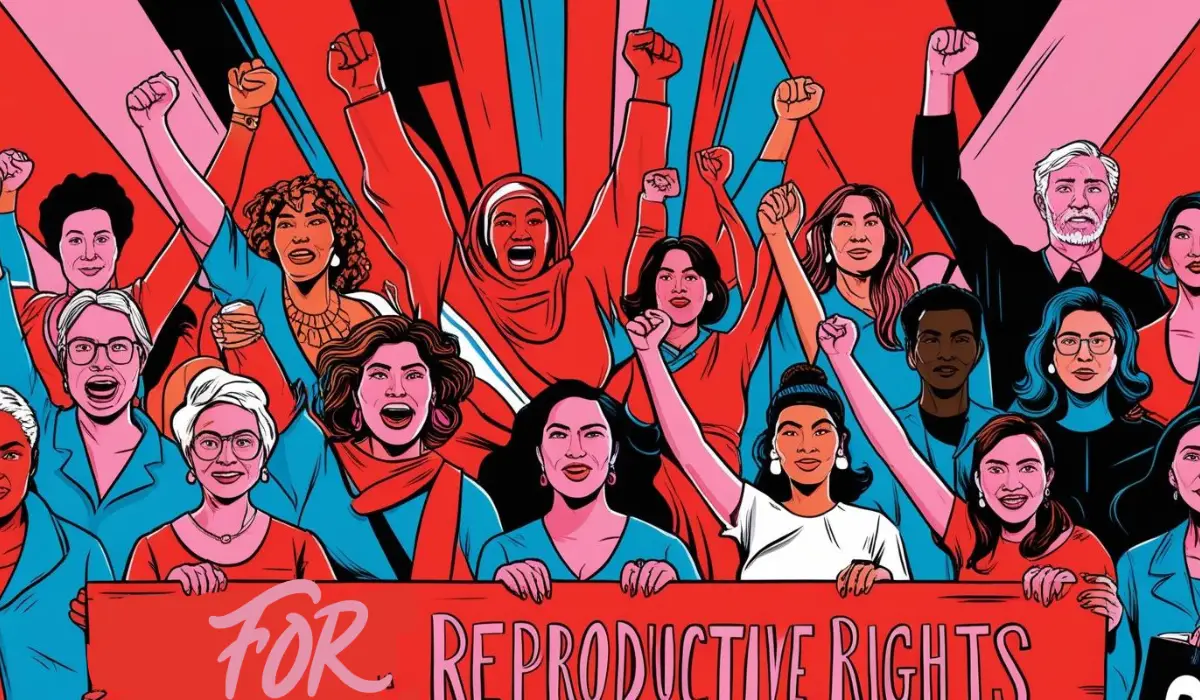Donald Trump has been recruited for the second time by the American people to lead the American government for the next four years. Based on preceding experiences of a Trump led government and campaign speeches, there is a significant threat to women’s health and vital initiatives led by global south organizations and prominent Sexual and Reproductive Health and Rights groups and movements. In his previous administration, Trump reinstated and expanded the Global Gag Rule; a policy that severely restricted US foreign aid to organizations involved in abortion services, even if they merely discussed them. This led to drastic reduction in funding for a wide range of health activities, crippling the ability of SRHR focused organizations to provide essential services while disrupting larger health programs, including those for HIV prevention, maternal health and family planning.
The Global Gag Rule’s impact was devastating, causing significant delays in services provided by already under-resourced health systems in the Global South. The consequences extended beyond reproductive health, restricting initiatives aimed at HIV prevention, maternal health, gender-based violence, and comprehensive family planning. This policy severely limited efforts made by organizations to promote SRHR and as local and regional health systems struggled to compensate for the funding and service gaps created by these restrictive policies. As documented by Sonke Gender Justice, the Global Gag rule had detrimental impact on women particularly migrant women and those from poor households in Cape Town, by restricting access to essential sexual and reproductive health services. The closure of these services not only limits access to safe termination of pregnancies but also threatens the overall health and well-being of women, necessitating a collective advocacy response to oppose the rule and its far-reaching consequences. An article titled “Foreign assistance or attack? Impact of the expanded Global Gag Rule on sexual and reproductive health and rights in Kenya” revealed that many organisations faced unsustainable operational challenges as they had to choose between US government funding and providing comprehensive reproductive health services, including abortion.
Looking ahead to Trump’s 2nd term, Project 2025, fronted by the Heritage Foundation, is designed as guide to Trump’s policies and describes steps that will be taken to reintroduce and expand on the restrictive laws like the Global Gag Rule, and this indicates a return to conservative policies that limit international funding for comprehensive SRHR services. There is significant evidence that these policies have dire consequences for women’s health and rights worldwide and evidence further supports that it is the most vulnerable women, girls and marginalized groups that bear the brunt of these policies, facing increased barriers to accessing healthcare due to existing socioeconomic and infrastructural challenges.
The Dutch government was quick to respond to Trump’s earlier administration by launching the “She Decides” to counter the effects of the policies at the time. Unfortunately, Trump’s reelection is at a time where the Dutch government has announced budget cuts, which further exacerbate the situation. The Netherlands has been a leading donor in SRHR, providing critical support for family planning and HIV services. However, the Dutch government has announced significant cuts to its official development assistance (ODA), starting with €300 million in 2025 and scaling up to €2.4 billion annually by 2027. These cuts threaten to dismantle the progress made in SRHR, leaving a huge gap in funding and services for women and girls in Africa.
Both these occurrences are at a time gender equality and SRHR rights are receiving massive organized, well financed pushback. This places the coming five years at risk of seeing a dismantling and loss of most of the gains made in women’s rights especially around reproductive health and bodily autonomy. There is need for urgent action to stimulate advocacy and sustain dialogue on how to finance SRHR for the global south and resource constrained women, include women in areas of conflict and politically unstable regions.
At a time like this, there is a need for sustained advocacy and the urgent need for immediate action. At a time like this, it is our belief that many more governments should set up funding for SRHR.
By Jude Thaddeus Njikem- Sonke’s Regional SRHR Specialist








